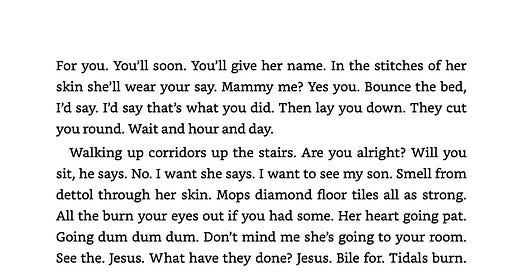Having a hard time nailing a character's voice? Investigate their syntax.
How grammar can build character
The literary agent Carly Watters did a nice focus on her Instagram this week in which she differentiated between “upmarket,” “commercial,” and “literary fiction.” For literary fiction, she explained, agents are looking for atmosphere and voice.
Atmosphere feels doable but voice can be a silverfish: so slippery and evasive, you can’t even identify when it is squirming in your hands.
For writers who are working on something with multiple perspectives, nailing the voices of numerous characters can be especially hard. If the voices in the story are too wildly different, the head hopping can be jolting for the reader, instead of intriguing. If they’re not different enough, the writer shows their hand because their characters feel like they came out of the same mold.
Voice is hard to think and talk about, but syntax isn’t. Syntax— the way that words and phrases are arranged inside a sentence—is something we can analyze in a pretty detached manner, but the act of deciding whether or not a character uses contractions or drops the “g” in “ing” words can inform so many other things about our characters, giving them life and voice without us even realizing that that was the agenda the whole time.
Some examples.



